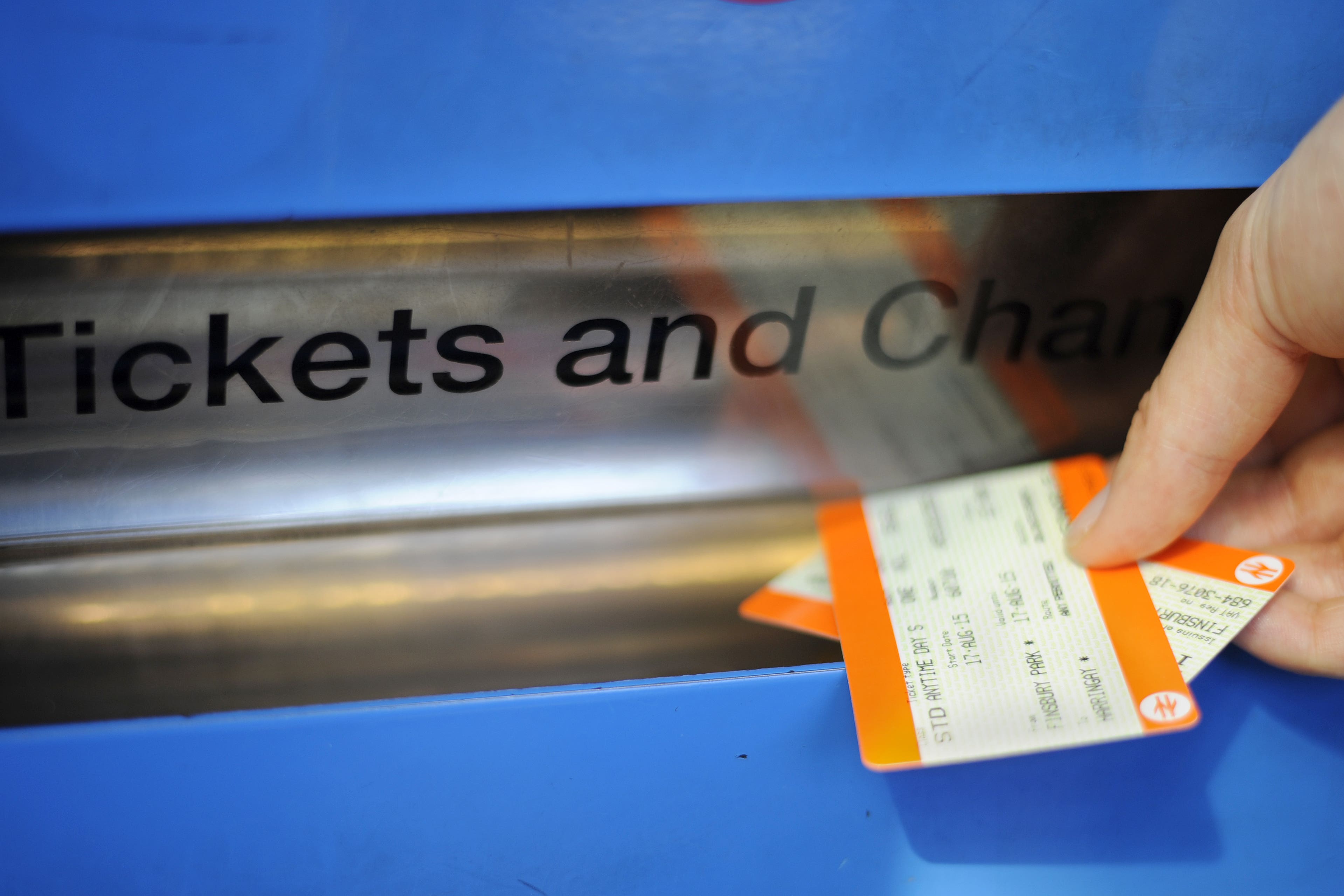Why you should buy your train tickets before 5 March
This years’s annual increase is the largest in a decade

Your support helps us to tell the story
From reproductive rights to climate change to Big Tech, The Independent is on the ground when the story is developing. Whether it's investigating the financials of Elon Musk's pro-Trump PAC or producing our latest documentary, 'The A Word', which shines a light on the American women fighting for reproductive rights, we know how important it is to parse out the facts from the messaging.
At such a critical moment in US history, we need reporters on the ground. Your donation allows us to keep sending journalists to speak to both sides of the story.
The Independent is trusted by Americans across the entire political spectrum. And unlike many other quality news outlets, we choose not to lock Americans out of our reporting and analysis with paywalls. We believe quality journalism should be available to everyone, paid for by those who can afford it.
Your support makes all the difference.Rail fares are set to go up on 5 March and current train tikcet prices will rise by 5.9 per cent.
This year’s annual increase is the largest in a decade, which has risen again compared to 2022’s 3.8 per cent price jump.
Because customers can buy train tickets up to 12 weeks ahead of travelling, travellers are being urged to purchase them ahead of the price rise.
In an email sent to customers today, train ticket aggregator Trainline warned: “If you’re planning a trip, book before midnight on 4 March to lock in a cheaper price.”
The government has said they are capping the rise below inflation; although it sat at 12.3 per cent last July, Bank of England governor Andrew Bailey expects that figure to halve this year.
Transport Secretary Mark Harper said: “This is the biggest-ever government intervention in rail fares. I’m capping the rise well below inflation to help reduce the impact on passengers.”
“It has been a difficult year and the impact of inflation is being felt across the UK economy. We do not want to add to the problem,” Mr Harper added. “This is a fair balance between the passengers who use our trains and the taxpayers who help pay for them.”
Commuters will see a big difference to their weekly costs. For example, travellers commuting from Oxford to London who have a season ticket will pay £340 more per year, as the price jumps from £5,756 to £6,096.
Meanwhile, a monthly season ticket from Brighton to London will rise from £430.10 to £455.47.
“No one likes prices going up. In our latest research, less than half of passengers think the railway currently performs well on delivering value for money tickets,” David Sidebottom, director of independent transport watchdog Transport Focus, said.
“After months of unreliable services and strike disruption, it’s clear that too many passengers are not getting a value for money service,” he added.
“Capping fares below inflation and the delay until March is welcome and will go some way to easing the pain, but the need for reform of fares and ticketing in the longer-term must not be forgotten.”
Join our commenting forum
Join thought-provoking conversations, follow other Independent readers and see their replies
Comments